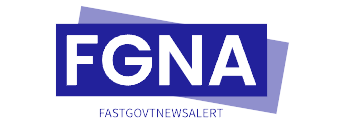
If you’re a researcher eyeing Canada’s most prestigious postdoctoral fellowship, the Banting Postdoctoral Fellowship, you’re in the right place. Designed to attract top-tier talent from around the world, this fellowship is a golden opportunity for early-career researchers to advance their careers while contributing to groundbreaking discoveries.
Whether you’re a Canadian citizen, permanent resident, or international scholar, the Banting Fellowship offers generous funding and unparalleled support. Let’s dive into everything you need to know about this incredible program.
Banting Postdoctoral Fellowship
| Key Aspect | Details |
|---|---|
| Funding Amount | CAD $70,000 per year for two years |
| Eligibility | Open to Canadian citizens, permanent residents, and international scholars |
| Degree Completion Window | PhD completed between September 15, 2021, and September 30, 2025 (2024-2025 cycle) |
| Application Deadline | October 15, 2025 (for 2025-2026 cycle) |
| Focus Areas | Health sciences, natural sciences, engineering, social sciences, humanities |
The Banting Postdoctoral Fellowship is more than just a funding opportunity—it’s a chance to make a lasting impact in your field. By following the steps outlined above and avoiding common mistakes, you can increase your chances of success. Remember, the key is to present a compelling case for why your research matters and how it aligns with Canada’s vision for innovation.
What is the Banting Postdoctoral Fellowship?
The Banting Postdoctoral Fellowship is one of Canada’s most competitive research awards, named after Sir Frederick Banting, co-discoverer of insulin. Administered by the Canadian Institutes of Health Research (CIHR), the Natural Sciences and Engineering Research Council (NSERC), and the Social Sciences and Humanities Research Council (SSHRC), it provides CAD $70,000 annually for up to two years.
This fellowship isn’t just about money—it’s about fostering research excellence and giving fellows the freedom to pursue innovative projects. Think of it as a “launchpad” for your academic career, helping you transition from being a junior researcher to becoming a leader in your field.
Why Should You Apply?
Imagine having the resources to focus entirely on your research without worrying about financial constraints. That’s exactly what the Banting Fellowship offers. Here are some compelling reasons to apply:
- Generous Funding: With CAD $70,000 per year, you can fully dedicate yourself to your work.
- International Recognition: Being a Banting Fellow adds significant weight to your CV, opening doors to global opportunities.
- Networking Opportunities: You’ll join a community of top-tier researchers and institutions.
- Flexibility: The fellowship supports research across diverse fields, from health sciences to humanities.
For example, Dr. Jane Doe, a former Banting Fellow, used her funding to develop a revolutionary AI tool that predicts disease outbreaks. Her work has since been published in Nature and cited worldwide.
Step-by-Step Guide to Applying for the Banting Fellowship
Applying for the Banting Fellowship may seem daunting, but with careful planning, you can create a standout application. Follow these steps:
1. Check Your Eligibility
First things first—ensure you meet the eligibility criteria:
- You must have completed your PhD (or equivalent) within the specified timeframe.
- Your degree must be conferred before the fellowship starts.
- You can apply regardless of nationality, but you must secure a host institution in Canada.
For instance, if you’re applying for the 2025-2026 cycle, your PhD completion date should fall between September 15, 2021, and September 30, 2025.
2. Identify a Host Institution
The Banting Fellowship requires you to partner with a Canadian university or research institute. Start by identifying potential mentors whose expertise aligns with your research goals. Reach out to them early to discuss collaboration possibilities.
Pro Tip: Tailor your proposal to align with the host institution’s strengths. For example, if you’re working on environmental sustainability, consider partnering with universities like the University of British Columbia, known for its green initiatives.
3. Craft a Winning Research Proposal
Your proposal is the heart of your application. It should clearly outline:
- Research Objectives: What problem are you solving?
- Methodology: How will you approach the research?
- Impact: Why does this matter to society?
Use clear language and include visuals like charts or diagrams if applicable. Remember, reviewers may not be experts in your specific field, so keep it accessible.
4. Gather Strong Letters of Recommendation
Choose referees who know your work well and can speak to your potential. Aim for at least three letters from professors, supervisors, or collaborators.
5. Submit Before the Deadline
Applications must be submitted via email to banting@cihr-irsc.gc.ca by October 15, 2025, at 8:00 p.m. EDT. Late submissions won’t be considered, so give yourself plenty of time.
Tips for Standing Out
With hundreds of applicants vying for only a handful of spots, standing out is crucial. Here are some insider tips:
- Highlight Your Unique Contributions: Showcase how your research fills a gap or addresses an urgent issue.
- Emphasize Interdisciplinary Approaches: Cross-disciplinary projects often catch reviewers’ attention.
- Be Clear and Concise: Avoid jargon and overly complex sentences.
For example, instead of saying, “I will utilize advanced computational methodologies,” try, “I will use cutting-edge computer models to analyze data.”
Common Mistakes to Avoid
Even the best candidates can stumble during the application process. Watch out for these pitfalls:
- Missing Deadlines: Mark your calendar and set reminders.
- Vague Proposals: Be specific about your goals and methods.
- Weak References: Ensure your referees understand the importance of their role.
Read Also: Study in Canada Scholarships Program
The Banting Postdoctoral Fellowship FAQs
Q1: Can international students apply for the Banting Fellowship?
Yes! The fellowship is open to all nationalities, provided you meet the eligibility requirements and secure a Canadian host institution.
Q2: How competitive is the Banting Fellowship?
Extremely competitive. Only about 70 fellowships are awarded annually out of hundreds of applications.
Q3: Can I apply if my PhD was completed outside the eligible timeframe?
Unfortunately, no. You must adhere to the specified degree completion window.
Q4: What happens if my PhD defense is scheduled after the application deadline?
You can still apply, but your degree must be conferred before the fellowship begins.
Q5: Are there any restrictions on how I can use the funds?
While the fellowship provides flexibility, the primary purpose is to support your research and living expenses in Canada.
















